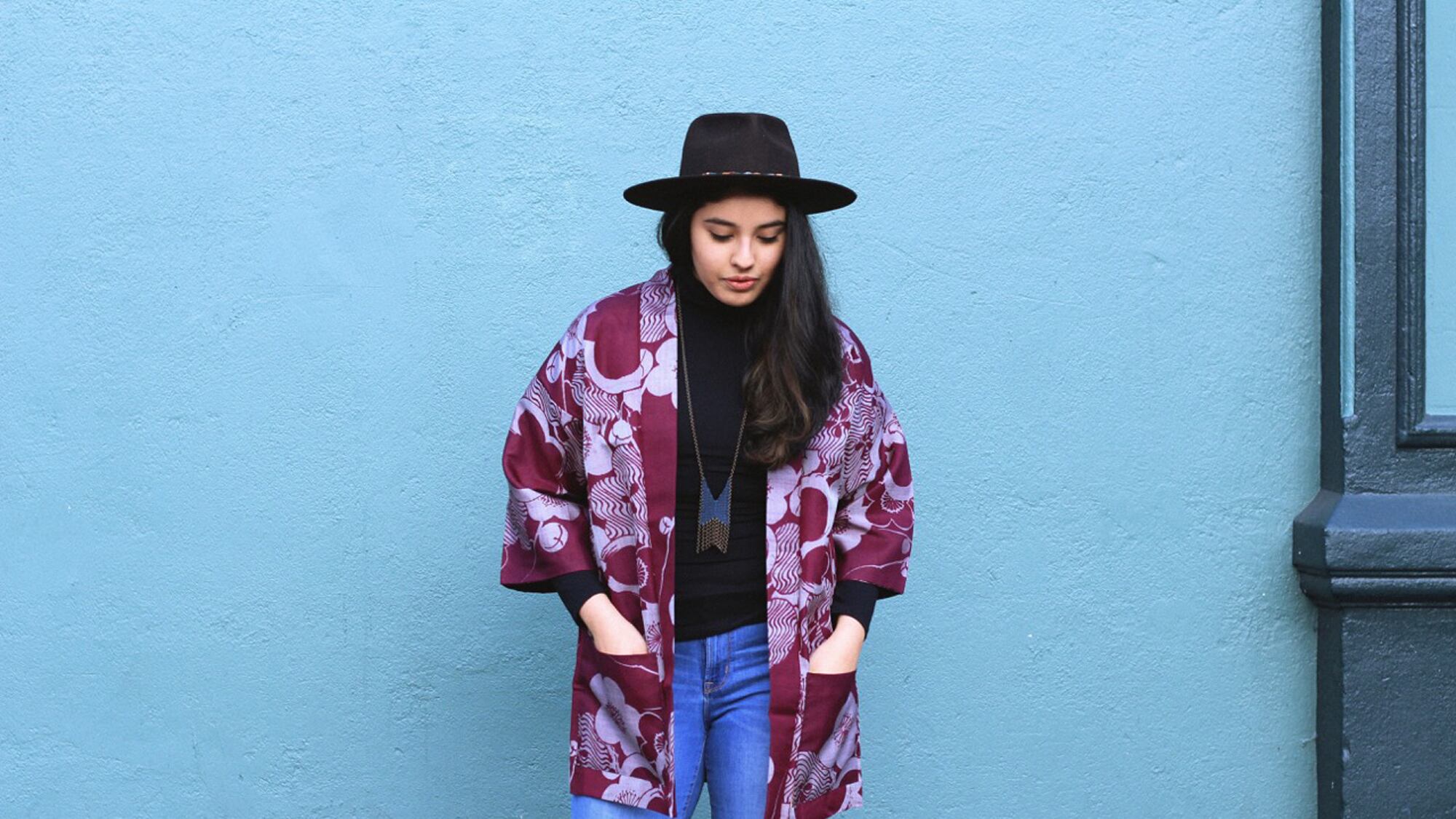"Sustainability" is the biggest buzzword in Portland fashion. Speak to womenswear designers, boutique owners and vintage resellers, and your conversation will quickly turn to the ethical implications of minimizing production waste and the joys of rescuing old garments from small-town Goodwills and junk shops.
Kiriko Made takes Portland's sustainability ethos, wraps it in a cozy layer of woven indigo, and ratchets it up to the extreme. Tattered vintage blankets are imported from Japan and patched with once-discarded squares of cotton. Kimonos are tailored to contemporary cuts, the excess cut from the garments' traditionally long sleeves fashioned into spacious pockets. Scraps of fabric are tightly rolled and sewn together into multicolored floor mats. Such fabrics—some of which are up to 50 years old—are relics of a garment culture that is fast waning among Japanese youth.
"Younger people [in Japan] are no longer interested in the traditional arts-and-crafts scenes anymore, because they're interested in Western culture," says Momoko Kanaoka, Kiriko Made's product designer and production manager. "The whole industry of traditional Japanese arts and crafts is dying."

Kiriko Made doesn't sell Japan's cultural ephemera to fetishizing Americans, but takes traditional Japanese fabrics and design techniques and applies them to goods for today's hip consumers. Many of Kiriko Made's products are one of a kind—blankets, bags, jackets and vintage Levi's are hand-repaired with imported vintage fabrics by one of Kanaoka's in-house seamstresses, who work in an open studio space at the back of the boutique. The shop also imports some of their goods and works with a few small local producers, such as a Gresham seamstress who dropped off two large bags of flower-patterned travel bags on a recent visit.
"We want to show these beautiful fabrics," says Katsu Tanaka, Kiriko Made's owner and creative director. "What is the best way to show it? Many of the Japanese products are for a niche market. Instead of making Japanese products with Japanese fabrics, we're making dopp kits and backpacks."
Tanaka is a veteran of Portland's fashion scene, having opened Old Town streetwear stalwart Compound Gallery in 2002. He started Kiriko Made as an online retailer in 2013, opening a storefront less than two blocks away from Compound in 2016. As far as fashion goes, the two businesses couldn't be more different.
"I was getting really tired of how fast the fashion scene was working," says Tanaka. "When we started Compound, there were three and a half [fashion] seasons. Now, there are six or seven seasons. Within a month, everything is devalued 25 percent. Within three months, its 50 percent. So we asked, 'What's the value?' Here, we're balancing it out a little bit."
Tanaka and Kanaoka don't just strive for a zero-waste business. In using scraps of fabric and repurposing unwanted traditional garments into modern fashion items, they aim to turn others' leftovers into products with emotional value.
"A lot of fabrics that we use have lasted 50 years," says Tanaka. "We give them another life, so hopefully they last another 50 years."
GO: Kiriko Made, 325 NW Couch St., 503-222-0335, kirikomade.com. Instagram: kirikomade.
